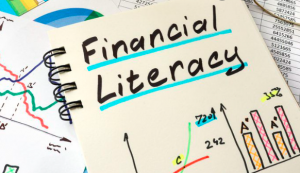Essential Personal Finance Terms Every Adult Should Be Aware Of
Financial terms such as assets or stocks mean different things depending on the type of investment you’re talking about. Knowing these differences makes investing easier. Investment is a tricky topic because there are multiple ways to invest, ranging from passive investments (like mutual funds) to those that require constant attention, such as trading individual stocks. Understanding these types of investments will help you decide which strategy suits your financial goals.

Before we begin, here’s an overview of what exactly an asset means and how it differs from other types of accounts.
What Is an Asset?
An asset is anything valuable that has use beyond your personal needs. For example, if I bought shares in my favorite food company, they would be considered my assets. The value of those assets can fluctuate, so let’s say that the stock went down 10 percent after I purchased them but then recovered all day and made up for the lost money by the close of business. That recovery could be considered an increase in its initial real-money value.
Investment Terms
If I had invested in an index fund that tracks the S&P 500 Index, my investments would still qualify as assets, even though their value might not have increased.
When people talk about their “assets,” they usually mean stocks, bonds, real estate, cash, or precious metals. Assets are also known as tangible items, whereas intangible items include things like income streams, businesses, patents, royalties, goodwill, intellectual property rights, trademarks, franchises, copyrights, etc. If you own an asset, it’s something that you have control over. Some examples include stocks, bonds, real property, gold bullion, etc.
If you own an asset, you have some degree of control over it. This means that you can sell it at any time and buy another one when you want. You may choose to hold onto your asset until you need it for a specific purpose.
The Bottom Line
Whether you’re buying or selling an asset depends on whether you plan to keep it long-term, as well as the price you pay and what the market is offering. Buying low prices now for assets that you hope to hold for years while waiting for higher prices later should be considered. It’s best to wait on your investment decisions. Unless of course if you know exactly why you want to take action sooner than later.





















